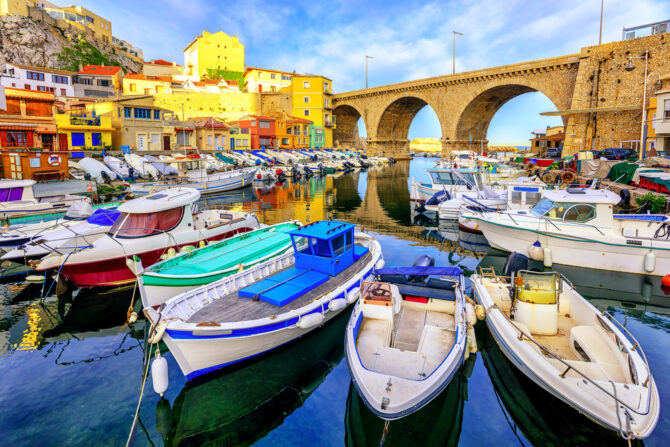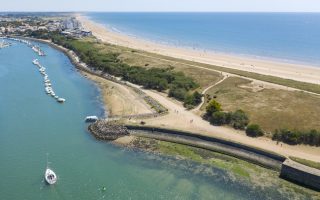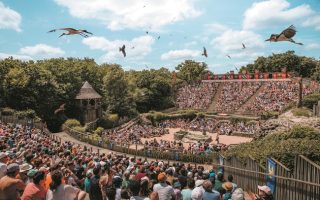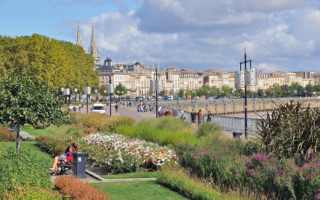Three Days in Marseille: Your France Rugby World Cup Itinerary


Visiting Marseille for the France Rugby World Cup 2023? This host city is not only home to Stade Vélodrome Marseille, where four of the pool matches and quarter-finals will be held; it’s also France’s second-largest city and most important Mediterranean cruise port. Plan a few days before or after match day to experience Marseille and follow our insider tips to take in all the highlights.
Your France Rugby World Cup Itinerary: Marseille
Day 1: Sightseeing in Marseille
The Vieux Port (Old Port) is a hive of activity in the morning, so start your city tour with a walk around the quays. Pass the yacht harbour with its gleaming rows of luxury vessels, browse the stalls of the waterfront fish market, where fishermen gather each morning to sell the day’s catch, then climb up to the ramparts of the oceanfront Fort Saint-Jean.
Hop aboard the Petit Train for a scenic ride up to the hilltop Notre-Dame de la Garde Basilica (or climb up on foot for an extra challenge), Marseille’s most prized landmark. Gaze up at the golden Virgin Mary statue, peek inside at the dazzling mosaics, then head up the bell tower for arguably the city’s best view.
Head back down to the Vieux Port for lunch at one of the seafood restaurants around the quayside, then hire a bike or Segway to explore further. To the north, the Le Panier neighbourhood is home to architectural highlights such as the Byzantine La Major Cathedral, the Hôtel de Ville, and La Maison Diamantée, and the cobbled lanes are a warren of artisan’s shops, galleries, and boutiques.
Complete your sightseeing tour at the Palais de Longchamp. The palace complex is home to the Museum of Fine Arts and the Natural History Museum, but you’ll be equally impressed with a stroll through the landscaped gardens and the view of the grandiose palace façade and fountains from Boulevard Longchamp.
Day 2: Match Day
The gleaming façade of the MuCEM (Museum of Civilizations of Europe and the Mediterranean) stretches along the north shore of the Vieux Port, and it’s a fitting backdrop for the city’s most innovative museum. Walk the footbridge between the J4 Esplanade and Saint-Jean Fort for a sweeping view over the harbour, then head inside to stroll around the Mediterranean garden and dive into exhibitions on Mediterranean art, history, food, and culture.
If it’s an evening kick-off, you’ll still have time to kill before the match, so hit the beach to soak up some sun and surf. Marseille’s southern beaches lie within a short hop of the Stade
Vélodrome, and Prado Beach is a firm favourite. If you tire of the beach, the 18th-century Borely Chateau, with its museum and landscaped gardens, is within walking distance.
Post-match celebrations in Marseille are guaranteed to continue into the early hours—this French city is renowned for its diverse nightlife. You’ll find bars, restaurants, and nightclubs clustered around the Vieux Port, or for a different vibe, head to Cour Julien, where the graffiti-covered buildings harbour some of the city’s coolest cocktail bars, tapas bars, and nightclubs.
Day 3: Corniche and the Calanques
Corniche Kennedy winds its way south of Marseille, affording broad ocean views as it curls around the coastal cliffs and sandy coves. Cover the 4km stretch on foot or by bike if you’re feeling energetic—the perfect way to work off a post-match hangover. Look out for the 19th-century Villa Valmer and the fishing village of Vallon des Auffes along the way, or cool off with a swim at one of the many beaches.
A cruise around the Calanques National Park is a Marseille must, and the best views of the fjord-like landscapes are from the water. Set sail along the rugged coastline, with its soaring cliffs and narrow inlets, then head to seaside Cassis to sample local wines and take in the views from the Cap Canaille headland.
Make your way back to Marseille in time for a final apéro (aperitif) along the Vieux Port—the local tipple of choice is anise-flavoured pastis, and you can also pick up some to take home with you at La Maison du Pastis.
Share to: Facebook Twitter LinkedIn Email
More in France Rugby World Cup 2023, marseille
By Zoë Smith
Leave a reply
Your email address will not be published. Required fields are marked *



